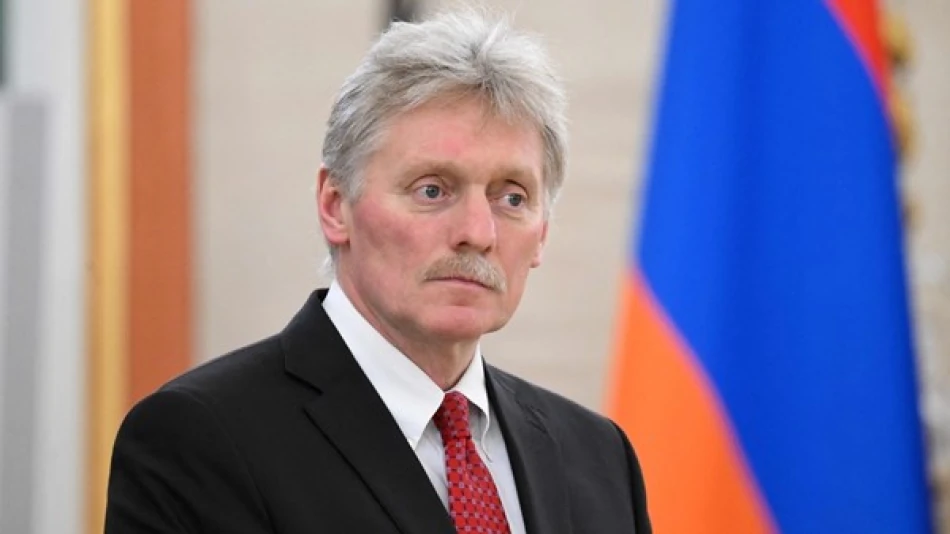
Putin Ready to Discuss Ukraine Peace Agenda, Kremlin Confirms
Putin Signals Willingness for Ukraine Peace Deal — But Only on Moscow's Terms
Russian President Vladimir Putin remains open to a peaceful settlement over Ukraine, but Moscow will not compromise on achieving its stated objectives, Kremlin spokesman Dmitry Peskov declared in televised remarks Sunday. The statement underscores Russia's continued hardline stance nearly two years into the conflict, suggesting any negotiations would require significant Ukrainian concessions.
Moscow's Conditional Peace Overture
Peskov's comments represent the latest in a series of Russian diplomatic signals that appear designed to project reasonableness while maintaining maximalist demands. "President Putin has repeatedly spoken about his desire to bring the Ukrainian settlement to a peaceful conclusion as soon as possible," the Kremlin spokesman said. "This is a long process that requires effort. It is not an easy matter."
However, Peskov immediately qualified this apparent openness by emphasizing Moscow's non-negotiable position: "The main thing for us is to achieve our goals. Our goals are clear."
Russia's Unchanged Strategic Objectives
Russia's "clear goals" have remained consistent since the February 2022 invasion: securing Ukrainian recognition of Crimea as Russian territory, establishing the independence of Donetsk and Luhansk regions, and ensuring Ukraine's neutrality by preventing NATO membership. Moscow has also demanded what it terms the "demilitarization" and "denazification" of Ukraine — euphemisms that Western analysts interpret as regime change in Kyiv.
These objectives have shown little evolution despite Russia's mixed military performance and the substantial costs of the prolonged conflict, including international sanctions and diplomatic isolation.
Timing and Strategic Context
The timing of Peskov's remarks appears significant, coming as Ukraine faces mounting pressure over Western military aid and ammunition supplies. Recent polling in the United States and Europe shows declining public support for sustained assistance to Ukraine, potentially creating an opening for Russian diplomatic maneuvering.
Moscow's peace rhetoric also coincides with Russia's ongoing winter military campaign aimed at degrading Ukrainian infrastructure and civilian morale — a strategy that suggests Russia views military pressure as essential leverage for any eventual negotiations.
International Response and Prospects
Previous Russian peace proposals have been rejected by Ukraine and Western allies as attempts to legitimize territorial gains while allowing Moscow to regroup militarily. Ukrainian President Volodymyr Zelensky has consistently maintained that any settlement must involve complete Russian withdrawal from occupied territories, including Crimea.
The gap between these positions remains vast, making near-term diplomatic breakthrough unlikely despite Peskov's latest comments. Western officials have repeatedly stated that any sustainable peace agreement must respect Ukraine's sovereignty and territorial integrity — principles that directly contradict Moscow's stated objectives.
Most Viewed News

 Layla Al Mansoori
Layla Al Mansoori






